China is a global driver of innovation and a pioneer in e-mobility
The country continued to maintain its role as the leader in sales and registration numbers for electric vehicles. In the first half of 2018, every second electric car produced worldwide was sold to Chinese customers. The interest in electric vehicles in China remains strong and much higher than in western countries. According to a survey, 65% of potential car buyers in China are considering buying an electrically powered vehicle. The poll numbers in Germany, France and the US are only 25, 30 and 20 percent respectively.
Experts explain the good reputation of electric vehicles with the fact that many Chinese so far have no vehicle and therefore prefer the new drive concept without prejudice or eventual habituation to an internal combustion engine. In addition, many are already used to electrical mobility because since 2001, the number of electric scooters has increased to 60 million and every year add another 20 million. Small vehicles with internal combustion engines have been banned for some years in almost all Chinese cities.
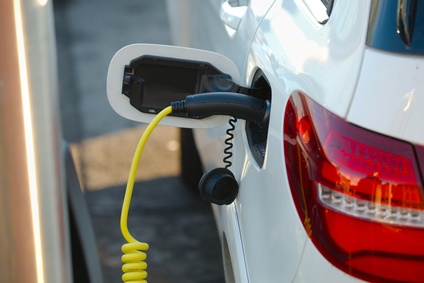
The infrastructure for electric vehicles is also massively expanding across the country. The number of charging stations has more than doubled within one year and is now at an average of 5.7 stations per 100 km, ahead of Germany and France with 4.5 and 2.3, respectively. Here, German companies such as Siemens or Phoenix Contact are already working together successfully with the State Grid Corporation of China (SGCC).
China is also innovative in the area of autonomous and connected driving. Recently, the government has granted German auto companies permission to test autonomous vehicles on the streets of Beijing and Shanghai. In addition, there are initiatives to connect vehicles with each other and with mobile devices and smart street signs. Chinese companies, young startups and university spin-offs, with the support of the government and international investors, are trying to challenge the supremacy of American IT and technology companies such as Google’s Alphabet, Uber or Tesla. The taxi and car sharing provider Didi Chuxing has raised more than $ 4 billion in investor funds over the last two years, ahead of rivals Grab from Singapore and Lyft and Uber from the US. Many goods sold in China must obtain a China Certification (China Compulsory Certificate CCC).
For more information on how CCC certification may affect your company, or for more information about CCC certification in general, the process, and the associated costs, please visit our website and our News Section where you will find current updates twice a week.
Please do not hesitate to contact us for further details and consultation. You can contact us via e-mail, or call us (UK: +44 2071931135, Rest of Europe: +49 69 2713769150, US: +1 773 654-2673).
You can also check out our free CCC-Brochure, which can be downloaded right here as a PDF file or you consult our book (in English) “A Brief Guide to CCC: China Compulsory Certification”, which can be found directly hier on Amazon.
Review IZB – International automotive supplier fair in Wolfsburg
This year the 10th International Suppliers Fair (IZB) took place from October 16.-18, 2018 in Wolfsburg, Germany. The fair is one of the most important for the automotive supplier industry in Europe. This year the focus was on the topic of digitization (“Think Digital”) which clearly conveys the radical changes in the automotive industry. In 7 halls the 838 exhibitors from 34 nations presented to more than 50,000 visitors. Autonomous driving, driving bans in inner cities, and electromobility were some of the topics discussed.
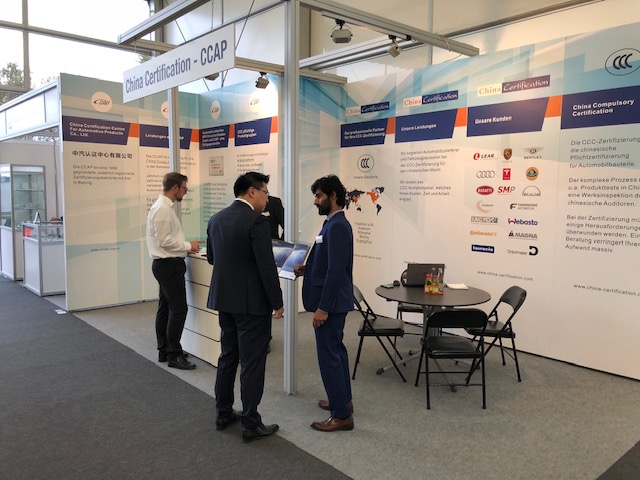
At the International Suppliers Fair, MPR China Certification GmbH and the China Certification Centre for Automotive Products Co., LTD (CCAP) were able to provide advice to interested suppliers in the areas of CCC certification and Taiwan certification. The requirements of CCC certification and updated regulations are complex and can raise many questions. MPR China Certification GmbH has been offering CCC certification services since 2005 and works very closely with the CCAP.
We offer CCC Certification for Automotive Suppliers and Manufacturers, including CCC for individual parts as well as Complete Type Approvals (including emission and fuel consumption test), to enable sales of vehicles to the Chinese market.
For more information on how CCC certification may affect your company, or for more information about CCC certification in general, the process, and the associated costs, please visit our website and our News Section where you will find current updates twice a week.
Please do not hesitate to contact us for further details and consultation. You can contact us via e-mail, or call us (UK: +44 2071931135, Rest of Europe: +49 69 2713769150, US: +1 773 654-2673).
You can also check out our free CCC-Brochure, which can be downloaded right here as a PDF file or you consult our book (in English) “A Brief Guide to CCC: China Compulsory Certification”, which can be found directly here on Amazon.
VW Group suffers significant losses by WLTP conversion
Since all new cars have to be registered in accordance with the WLTP emission test method from September 2018 onward, the VW Group, and in particular its core brand Volkswagen, has suffered significant declines in car sales and sales figures. In comparison to the previous month, 18.3 percent fewer vehicles were delivered in September. Customers who have ordered a new vehicle have to accept long waiting times due to the delays in the WLTP test procedure and because the group cannot keep up with the time-consuming and complicated test process.
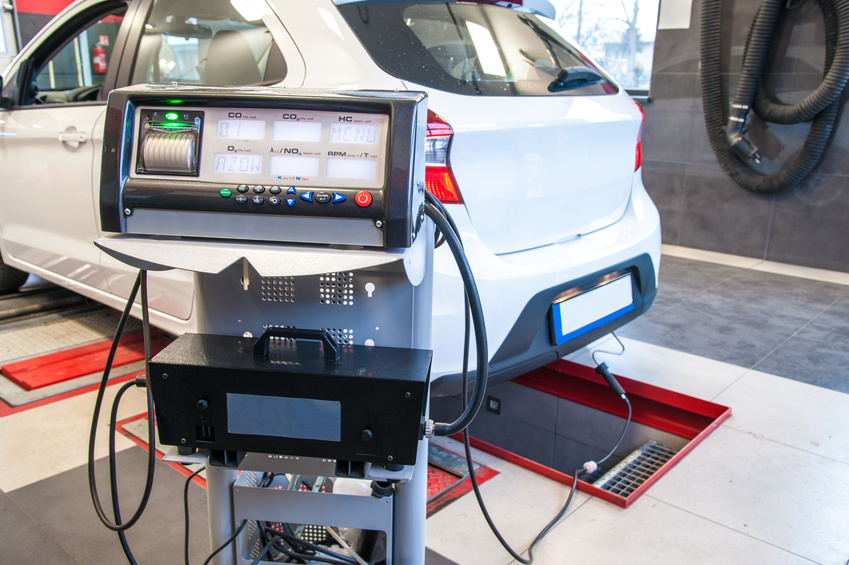
Looking back at the sales figures a year ago, the decline in Europe and Germany has been even more massive. Thus, 42.6 and 47.1 percent fewer vehicles were delivered. Due to the delays in the WLTP test procedure, the belts at the parent plant in Wolfsburg were also partially at a standstill and the company had to park unchecked vehicles on replacement parking spaces, including the not yet opened BER airport in Berlin. In addition, on the effective date of the new WLTP procedure on 1 September, only 7 out of 14 VW models met the requirements of the new emissions test. After sales records in the summer, however, the management of VW has planned for the decline in sales and is hoping to have recovered again by the end of the year 2018 from these difficult circumstances.
But also the trade dispute between China and the United States make the Wolfsburg-based company concern. The customers in China, what is now the most important single market of VW, are unsure due to the trade dispute and the threat of punitive tariffs. Fortunately, there was only a slight decline in sales in China, down 10.5 percent from the previous month, and 4.8 percent fewer vehicles sold in the US. Vehicles and components for the Chinese market must be labeled with the CCC logo of the China Compulsory Certificate (CCC certificate).
For more information on how CCC certification may affect your company, or for more information about CCC certification in general, the process, and the associated costs, please visit our website and our News Section where you will find current updates twice a week.
Please do not hesitate to contact us for further details and consultation. You can contact us via e-mail, or call us (UK: +44 2071931135, Rest of Europe: +49 69 2713769150, US: +1 773 654-2673).
You can also check out our free CCC-Brochure, which can be downloaded right here as a PDF file or you consult our book (in English) “A Brief Guide to CCC: China Compulsory Certification”, which can be found directly here on Amazon.
Hyundai considers vehicles produced in China to export to Southeast Asia
Like most foreign car manufacturers, Hyundai has also established a joint venture for production in the local Chinese market. The Beijing Hyundai Motor Company is 50 percent owned by the Korean Hyundai Motor Company and the Chinese BAIC Motor Corporation. The group operates five manufacturing sites and a research and development center in the Shunyi district, near the capital city of Beijing. Another factory was opened in 2010 in Hebei Province, which produces the small car Hyundai Accent. Vehicles built in China must be certified to CCC (China Compulsory Certification) standards. In the course of establishing itself in the Chinese market, Hyundai has also created its own network of suppliers with Korean participation.
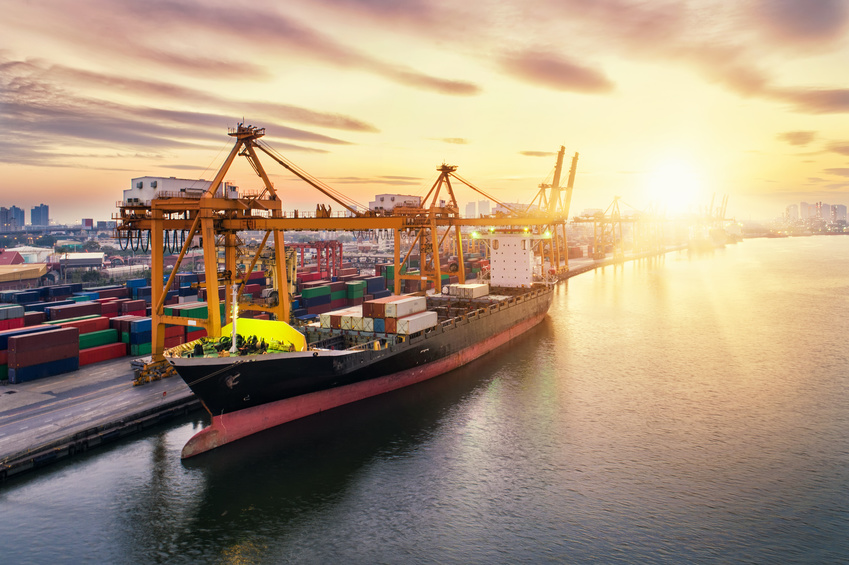
The car market in China was once the largest buyer of vehicles for Hyundai and its subsidiary Kia. The number of vehicles sold was exceeded only by Volkswagen and General Motors. But now they are struggling with sales problems and lose market share in China. The reasons were a too strong confidence in sedan models, a poor brand image as well as a catching up of the local Chinese automakers in price performance and quality for their SUVs. These off-road vehicles were once the driving force and figurehead of Hyundai and its joint venture partner Hawtai. The Hyundai Santa Fe was in fifth place in 2010 of all sold SUVs in China.
Hyundai’s China sales dropped 40 percent in July compared to a year earlier, the lowest level since the global financial crisis in 2008. Now they have announced a new strategy due to declining sales in China. Production capacity will be used in the short and medium term for exports from China to Southeast Asia. At the end of this year, the first vehicles could be delivered, said a spokesman for Beijing Hyundai. Hyundai will benefit in this strategy from a lower import duty for vehicles produced in China compared to those from the main plant in South Korea. For imports to Vietnam from China must be paid 50 percent duty, from South Korea, however, 78 percent. Vehicles and components sold in China must undergo CCC certification and bear the appropriate CCC logo.
For more information on how CCC certification may affect your company, or for more information about CCC certification in general, the process, and the associated costs, please visit our website and our News Section where you will find current updates twice a week.
Please do not hesitate to contact us for further details and consultation. You can contact us via e-mail, or call us (UK: +44 2071931135, Rest of Europe: +49 69 2713769150, US: +1 773 654-2673).
You can also check out our free CCC-Brochure, which can be downloaded right here as a PDF file or you consult our book (in English) “A Brief Guide to CCC: China Compulsory Certification”, which can be found directly here on Amazon.
Toyota announces open collaboration for development of hydrid technology with its Chinese partners
Toyota is preparing to disclose its Prius hydrid technology to catch up with its competitors in the Chinese market. So far, the majority on the Chinese market are electric vehicles, that have to be certified in accordance with the standards of the CCC (China Compulsory Certification). According to anonymous sources, the Chinese government asked Toyota to provide its successful hybrid drive concept to local automakers. The same sources also reported advanced discussions between Toyota and Chinese Geely Automobile Holdings for a license to build the hybrid powertrain in China.
The initiative from Toyota for hybrid vehicles could benefit from the support of the Chinese government. Until now, predominantly electric-powered vehicles have been promoted, but hybrid vehicles, especially useful on long-haul trips or in rural areas, could accommodate China’s ambitious plans to reduce its emissions and dependence on oil imports. Tensions in the US-China trade dispute further fuel Toyota’s announced cooperation.
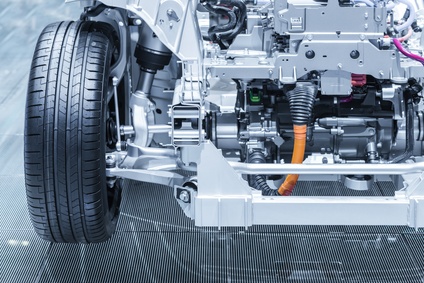
Increasing popularity of hybrid vehicles could help Toyota catch up with its rivals Volkswagen and General Motors in China. Both were able to sell more than 4 million vehicles last year, compared to 1.3 million for Toyota. Currently, Toyota’s share of hybrid vehicles sold in China is ten percent, and the target for 2020 is 30 percent.
At the present time, Chinese automakers have very limited hybrid technology. Therefore, they could provide the technology as a full package to Chinese partners under license. One reason for licensing is the complexity of a hybrid powertrain system. According to analysts and experts, such a system can not simply be copied and must be optimized in new vehicles and production environments with the necessary know-how. As a possible partner, the Chinese battery supplier Hunan Corun New Energy is in discussion, which has close ties to Geely and other automakers. Geely has risen to number 3 for the first time in terms of sales this year, leaving all Japanese competitors behind. Vehicles, no matter imported or locally produced, must be CCC certified and bear the appropriate CCC logo.
The Chinese automotive supplier Ningbo Jifeng now holds 84 percent of the shares of the Bavarian car seat manufacturer Grammer
The Chinese automotive supplier Ningbo Jifeng is now the sole major shareholder of the traditional manufacturer of car seats in Amberg, Bavaria. The components produced in Germany must comply with the CCC China guidelines for export to China. Already in August, the Chinese bought in 74 percent of the shares and now increased this share to 84 percent. Ningbo has responded to Grammer’s management request to squeeze out Bosnian major shareholder Hastor, who had put pressure on questionable contracts and business practices in previous years. After the takeover Grammer is to remain listed unchanged on the Frankfurt Stock Exchange. The German government and cartel authorities have already approved the takeover.
By working with Ningbo, the Asian and, in particular, the Chinese market has been better developed. This is already reflected in Grammer’s corporate figures in the first half of the year. Although there was a decline in the car division, sales of commercial vehicles division rose sharply. Sales increased by 2 percent to 928 million, earnings after taxes grew by 25 percent to 25 million euros.
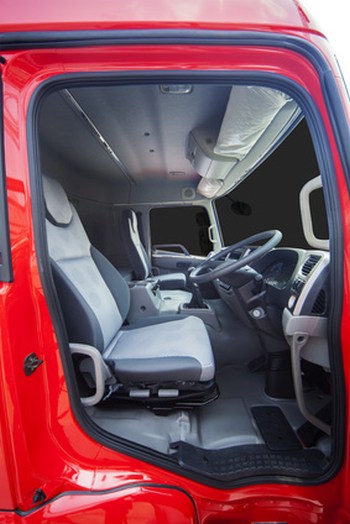
The positive corporate figures are mainly attributable to the profit from the production of seats for commercial vehicles such as construction machinery, trucks, forklifts and agricultural machinery. In the automotive sector, demand was slowed down by several model changes in North America. The Commercial Vehicles division, and in particular the production of seats, is highly profitable at Grammer. While center consoles and head restraints for passenger cars account for about two-thirds of revenue and half the operating profit, commercial vehicles account for 15 percent of revenue but 44 percent profit. The margin for commercial vehicle seats is over 10 percent and is approximately three times higher than the margin for automobiles. Many components of Grammer need the China CCC certification (China Compulsory Certificate).
For more information on how CCC certification may affect your company, or for more information about CCC certification in general, the process, and the associated costs, please visit our website and our News Section where you will find current updates twice a week.
Please do not hesitate to contact us for further details and consultation. You can contact us via e-mail, or call us (UK: +44 2071931135, Rest of Europe: +49 69 2713769150, US: +1 773 654-2673).
You can also check out our free CCC-Brochure, which can be downloaded right here as a PDF file or you consult our book (in English) “A Brief Guide to CCC: China Compulsory Certification”, which can be found directly here on Amazon.
Review IAA Commercial Vehicle Fair in Hannover
From September 20 – 27, 2018 the 67th IAA Commercial Vehicles took place in Hannover, Germany. This year the fair attracted more than 2,100 exhibitors and more than 250,000 attendees from all over the world. The fair is one of the most important in the field of transportation, logistics and mobility. This time the main focal points of the event were electric mobility and digitalization.
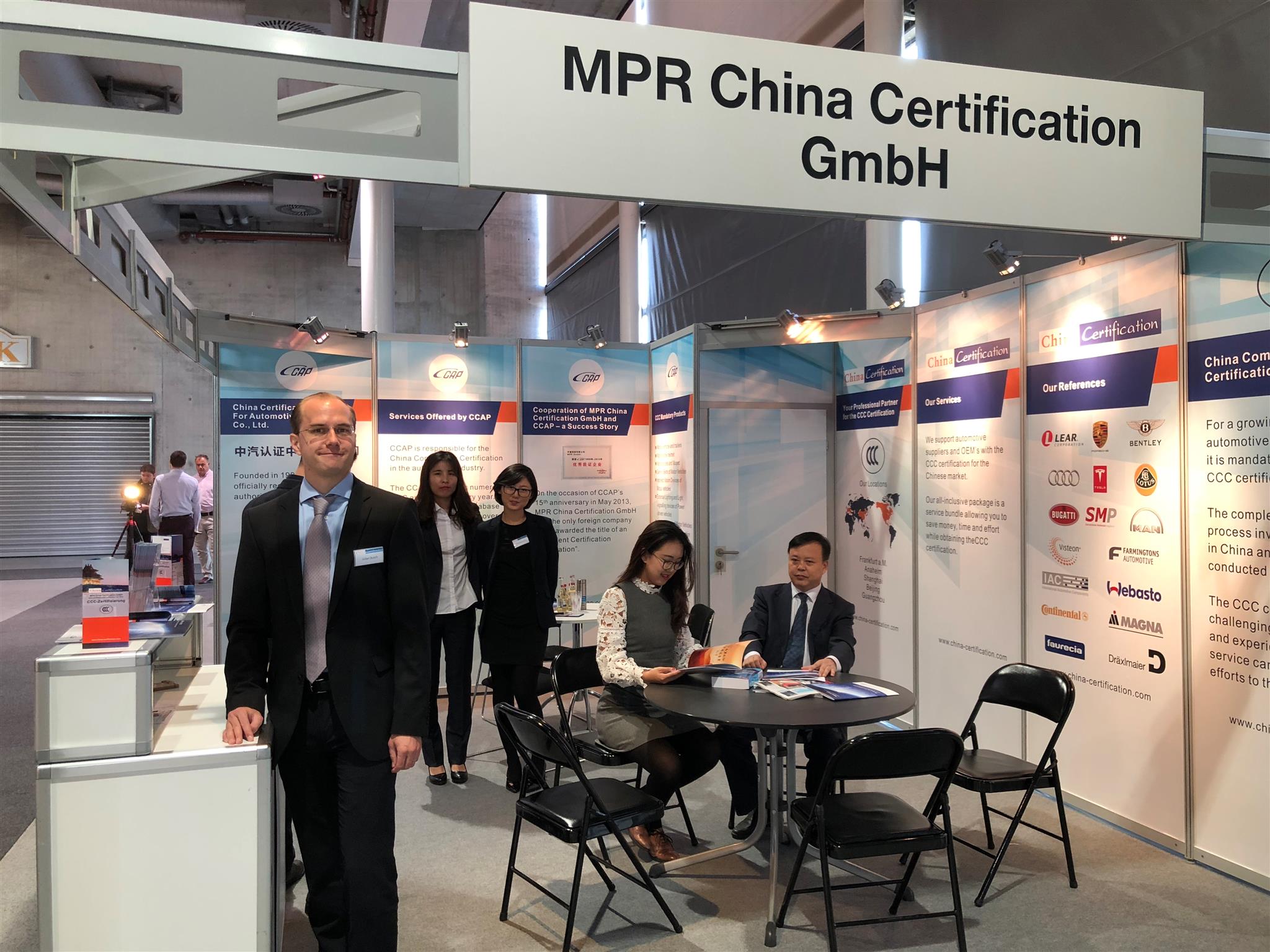
For China Certification Centre for Automotive Products (CCAP) and MPR China Certification GmbH the fair offered the perfect opportunity present together with a shared booth at the show. The goal was to meet with existing clients, introducing them formally to the certification authority (CCAP), meet new contacts and to also inform interested companies.
If you are also interested in meeting representatives of CCAP and MPR China Certification GmbH, you can find us at the International Supplier Fair (IZB) in Wolfsburg from October 16 – 18, 2018. Our booth will be number 3202 in hall number 3.
For more information on how CCC certification may affect your company, or for more information about CCC certification in general, the process, and the associated costs, please visit our website and our News Section where you will find current updates twice a week.
Please do not hesitate to contact us for further details and consultation. You can contact us via e-mail, or call us (UK: +44 2071931135, Rest of Europe: +49 69 2713769150, US: +1 773 654-2673).
You can also check out our free CCC-Brochure, which can be downloaded right here as a PDF file or you consult our book (in English) “A Brief Guide to CCC: China Compulsory Certification”, which can be found directly here on Amazon.
Chinese carmaker BYD opens the largest battery factory in the world
As part of the spin-off of its battery division, the BYD automotive group has opened the world’s largest battery factory in the northeastern province of Qinghai near Tibet. As the number two global vehicle battery producer, BYD is the fastest growing manufacturer alongside CATL. Many vehicle components sold in China must be CCC (China Compulsory Certification) certified.
In addition, BYD is considered the largest electric car producer with more than 100,000 electric cars and plug-in hydrids sold. With the opening of a new battery factory in Qinghai Province, they want to further expand their position. After full commissioning in 2019, the new plant will have a production capacity of 24 gigawatt hours (GWh) per year. According to analysts, BYD currently stands at 16 GWh and aims to increase its output to 60 GWh by 2020 with $3.8 billion in investment.
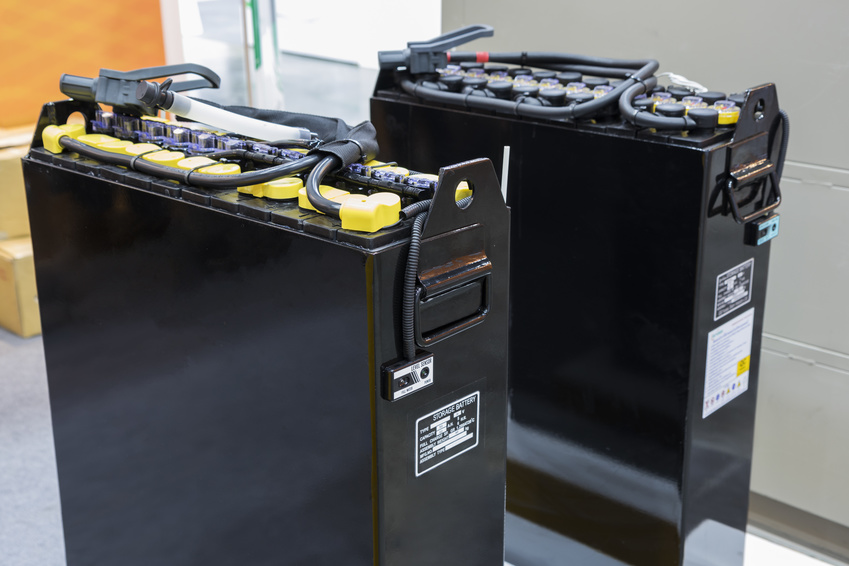
The BYD group, which is headquartered in the southern Chinese city of Shenzhen near Hong Kong, is one of the few car manufacturers to have its own battery production and to invest large sums in this sector each year, alongside with Tesla and Geely. Many well-known automobile companies buy their batteries from external manufacturers such as the Chinese CATL or the South Korean companies LG Chem, Samsung or SK Innovations. The new BYD plant is equipped with state-of-the-art manufacturing technology and is largely automated, with 100 robots to produce batteries in an area of 1 Million square meters.
Measured in terms of quantities, BYD quadruples its capacity for batteries for its electric vehicles with the reopening of the factory, among other vehicle models for the “Tang” E-SUV, which is popular in China. Not only in China electric cars from BYD are popular. Thus, the already mentioned SUV “Tang” in 2016 ranked third in the worldwide sold electric vehicles. Electrically powered taxis from BYD are in use worldwide, in three years at the latest they want to offer electric cars in the US. In addition to cars, electric buses from BYD are successfully on the market in China and the USA. At present, the first BYD production facility in Europe is build in Hungary as a factory for electric buses. Numerous automotive components need a China CCC certificate in China and need to be marked with the CCC mark.
For more information on how CCC certification may affect your company, or for more information about CCC certification in general, the process, and the associated costs, please visit our website and our News Section where you will find current updates twice a week.
Please do not hesitate to contact us for further details and consultation. You can contact us via e-mail, or call us (UK: +44 2071931135, Rest of Europe: +49 69 2713769150, US: +1 773 654-2673).
You can also check out our free CCC-Brochure, which can be downloaded right here as a PDF file or you consult our book (in English) “A Brief Guide to CCC: China Compulsory Certification”, which can be found directly here on Amazon.


